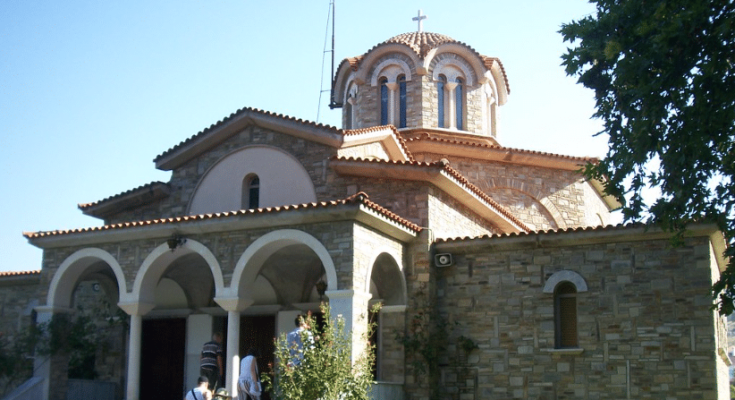Today, Greece is full of churches, crosses, and biblical iconography. Of course, it was not always like this. Throughout most of antiquity, the people of Greece worshipped their pantheon of pagan gods. How did this change? How did Christianity become so prevalent in Greece?
First century evangelism
The story of how Greece was Christianized begins in the first century, which is when Christianity itself also first began. Jesus of Nazareth started preaching in 30 CE and died in 33 CE. Shortly after this, Saul of Tarsus became a Christian. He was a zealous and enthusiastic preacher of the Christian message. For most of his career, he was known as Paul.
Although Paul did preach to Jews, he focused his preaching efforts on regions which were mainly populated by Greeks and other non-Jewish nations. Christianity may well have spread to some Greek territories before Paul’s missionary work, but it was Paul who was primarily responsible for the spread of Christianity in Greece.
Paul’s first stop on his first ever missionary trip was Cyprus. In Paphos, where the governor’s palace was, Paul even converted the governor of the island, Sergius Paullus.
Paul’s preaching in Greece
After leaving Cyprus, Paul next went to Greek cities in Asia Minor. It was not until his second preaching tour that he went to Greece itself. He traveled through Asia Minor and crossed over by sea into Macedonia.
Paul then continued on, spreading Christianity as he journeyed down through Macedonia, preaching at various major Greek cities. It was during this time that he converted many people in the cities of Thessalonica and Beroea.
Christianity then arrived in the Roman province of Achaia, or southern Greece. It was on this occasion that Christianity took hold of Athens, one of the most prominent cities of Greece.
A third preaching tour took Paul on a similar route, helping Christianity to gain an even further hold on some of the major cities of Greece. It was at this time that many people in Corinth were converted.
Obstacles to the spread of Christianity in Greece
Converting to Christianity was not something that was necessarily easy among the Greeks. There were various obstacles to its spread and acceptance. For one thing, the Greeks had numerous impressive temples, such as the Temple of Artemis in Ephesus, one of the Wonders of the Ancient World.
On the other hand, temples did not play a part in Christianity. The Christians of the first century did not even build churches since they usually met in private homes. This may well have been an obstacle for some, as it may have led to a feeling of inferiority.
A similar thing could be said about the lack of festivals. The only festival (if it may even be called that) by the first century Christians was the commemoration of Jesus’ death. This was a simple ceremony involving bread and wine, which would have seemed trivial to many of the ancient Greeks.
Paul’s letter to the Corinthians
Paul wrote two letters to the Christians in Corinth. The first one in particular can tell us a lot about what life was like for the Christians in Greece. Famously, the ancient Greeks loved knowledge in general. For this reason, many of the most prominent ancient philosophers were from Greece.
In Paul’s first letter to the Corinthians, he immediately starts talking about wisdom. He argues that the wisdom of “the world” (that is, the world of non-Christians, those alienated from the Christian God) is inferior to the teachings of Christianity.
The fact that Paul made a point of this confirms that this posed a challenge for the spread of Christianity in Greece. It was a country full of people who loved learning and who viewed themselves as intelligent. Thus, the introduction of new ideas that went contrary to their philosophies was always going to be a difficult process.
Yet, despite this challenge (and the previous ones mentioned), Christianity was able to thrive in Greece in the first century. Paul’s letters undoubtedly helped in this regard since they were spread around among the congregations.



